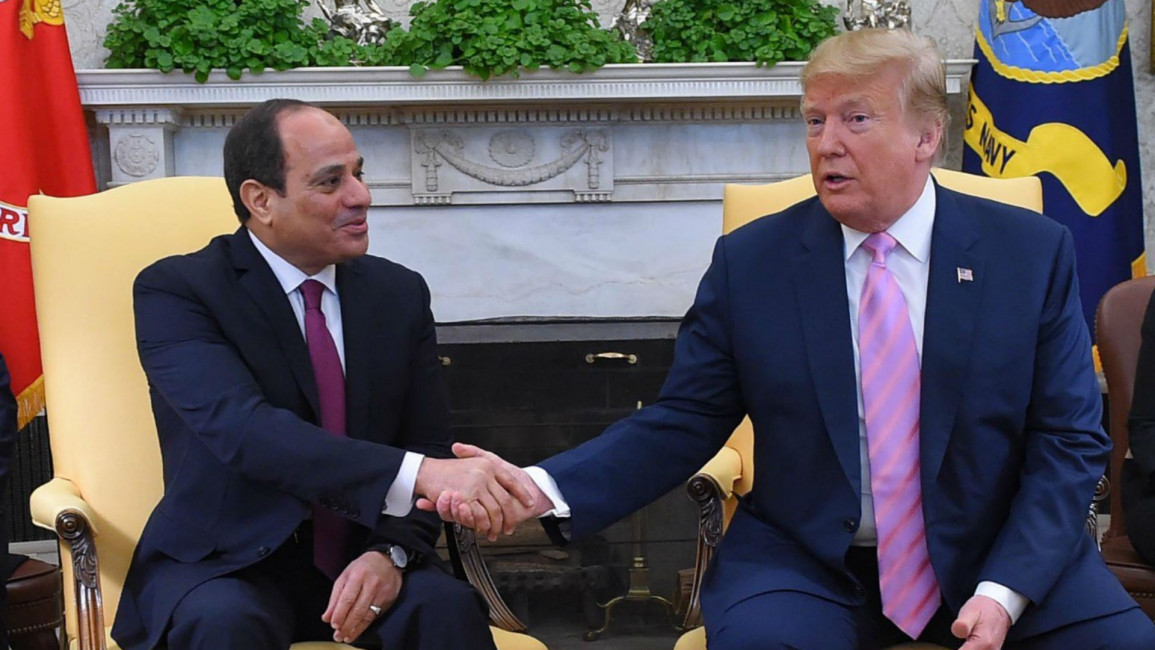Trump administration considers blacklisting Muslim Brotherhood following Sisi visit
The move comes three weeks after Trump hosted Egyptian President Abdel Fattah al-Sisi, whose government has led a far-reaching crackdown on secular and left-wing activists, as well as Islamists close to the Muslim Brotherhood.
"The president has consulted with his national security team and leaders in the region who share his concern, and this designation is working its way through the internal process," said White House Press Secretary Sarah Sanders.
The Brotherhood, an Islamist movement with support across the Middle East, was designated a terrorist organisation by Egypt following the overthrow of the country's first democratically-elected president in 2013.
Critics and observers have slammed the designation as a deliberate attempt to curb opposition to Sisi, who led the 2013 military coup against Mohamed Morsi.
During their White House talks, Trump praised Sisi for "doing a great job," saying the US and Egypt had "never had a better relationship."
Egypt is one of the biggest US strategic partners - an Arab country that made peace with top US ally Israel 40 years ago and a major recipient of American aid.
Opposition
Placing the Muslim Brotherhood on a terrorism blacklist would allow US officials to impose sanctions on any person or organisation with links to it.
The proposed move reportedly has the backing of hawkish National Security Advisor John Bolton and Secretary of State Mike Pompeo, however, the Pentagon, national security advisors, government lawyers and diplomats have voiced opposition to it on legal and policy grounds, according to unnamed officials cited by The New York Times.
Officials have argued that the 'terrorist group' designation does not quite fit for the Muslim Brotherhood, as it is not a single entity, but rather a loose-knit movement with chapters in several countries.
To complicate matters further, Brotherhood-inspired parties, including in Tunisia and Jordan, are part of the political mainstream and denounce terrorism. Opponents of the designation fear that such a move would strain ties with several Arab states, as well as NATO member Turkey, which is a key Brotherhood supporter.
It is also feared that proscribing the Brotherhood would encourage Sisi's crackdown on opposition in Egypt, which has been strongly criticised by human rights groups.

![Widespread famine is imminent in Gaza [Getty Images]](/sites/default/files/styles/image_330x185/public/2024-03/GettyImages-2015647000.jpg?h=199d8c1f&itok=mJWWP_Td)

